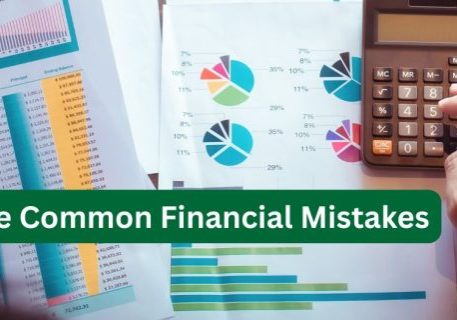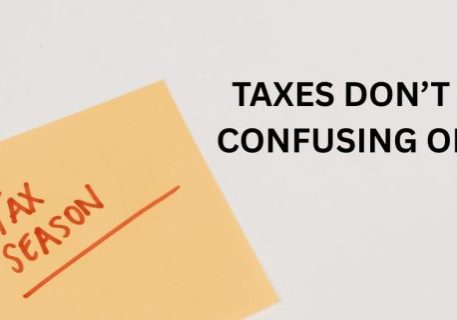

I heard this quote in a podcast that I subscribe to. This is so true figuratively speaking. The reason I say figuratively is because from my own experiences I would say women tend to be better long-term investors than men. If I were to generalize, women are more emotionally connected and therefore are better equipped to manage their own emotions when it comes to their investments. In fact, two of my best investment mentors have been my grandmothers.
My Great Grandma P (Pamnisano) started buying Kansas City Southern (KSU) railroad stock in the ’70s. She understood railroad companies because they were literally in her back yard. She lived fairly close to the West bottoms which was the rail yard in Kansas City, KS. It sits right next to the Missouri river for obvious reasons. She wasn’t a student of the stock market, rather she was a great listener to the sounds in the rail yard. Those sounds kept her up at night and through her anguish and torment she chose to turn a negative into a positive. Her listening skills were her acumen, not her analytical skills. She didn’t let the noise and busyness of Wall Street derail her. She simply listened to what was going on around her. The noise of the hustle and bustle of the rail yard was her focus. Through the years she continued to buy the stock and re-invest her dividends. When she passed away in 1988 all of her stock was given to her only daughter, my Grandma Rose Marie Davis.
I was very close to my Grandma Rose. Through my Grandpa Norris’ hard work and savings ethic, she was able to move away from the noise of the rail yard into a nice community not far from Mission Hills, KS. I unfortunately didn’t get to spend much time with Grandpa Norris as he passed away when I was 6 months old. But I did spend a lot of time with my grandma. She would show me her statements and how much money she was making in the market primarily on her KSU stock. She consistently re-invested her dividends as well. On Tuesdays she would buy the Wall Street Journal to see how her stocks were doing. What I would give to only get this sort of information on Tuesdays again.
She gave me what I consider to be my first dollar. She bought me a $25 savings bond when I turned 1 year old. I still have that bond today (42 years later). When I was in the 4th grade, I decided that I wanted to go to college and began asking for savings bonds for my birthday and Christmas presents. Most kids my age were asking for G.I. Joes and Transformers, but not me. I knew even at that young age that toys would come and go, but investing for my long-term future would be foundational to my entire life.
It was my grandma that gave me the bug of long-term investing. By eighth grade, I had officially begun my career in investing by joining the stock pickers investment club. It was a hobby at that time. Little did I know where it would take me. I was still more interested in computer programming as a career choice, but the seed had certainly been planted. My sophomore year in college I decided to switch my major to economics from computer science. After that year, I went to live with my grandma for summer break. The seed really began to grow as we often would sit down and discuss her investments and the stock market together.

It was the mid to late ’90s and Kansas City Southern had been buying up financial companies including Janus Mutual Funds, DST Systems, Berger Funds and more. Many of the Davis family members joined in on the fun and owned several Janus Funds. Janus was the hottest fund company of that time. I did my internship for DST Systems where my bug really got the best of me. They asked a group of interns on the first day a question: “Who here doesn’t balance their checkbook”? Me and another intern raised our hands. The manager immediately said, “You’re going to reconciling”. It was a basement job that was filled with research items scouring microfiche for mis-matched items inside of mutual fund accounts. I had 5 mutual funds to take care of. I don’t remember the names of all of them, but I do remember Valueline and a Masters Select fund. I couldn’t believe the checks those managers were making off of these funds and immediately decided I wanted to do that! At the time the internship barely covered the cost of gas and parking so money was of high value to me.
When I graduated college in 2000, I decided I was going to be a portfolio manager for Janus and I moved to Denver. I spent two years talking to investors about their Janus investments. I watched Janus go from their peak of managing about $330 billion in assets to managing about $89 billion dollars in a little under 2 years. I became a great empathizer, listener and learned a ton from other people’s mistakes. I heard and watched people buy high and sell low all due to their emotions getting the best of them. We were not allowed to give them advice due to regulations, but we could try to guide investors. I became very familiar with emotional investing. I even heard domestic violence cases happen in real-time over the phone. After September 11th, 2001 occurred, I decided it was time for me to go make a difference in people’s lives in an advisory capacity. The need was huge all across America and I knew I had the background (emotional capacity) to do it.
I’ve been managing money for investors ever since I left Janus in 2002. I’ve searched high and low for a crystal ball, a computer algorithm, artificial intelligence, etc. to no avail. I’ve watched Wall Street analyst try to predict the future with very little success. I’ve concluded that emotional intelligence not artificial intelligence or educational intelligence is what wins the stock market game in the long run. Having emotional intelligence is the equivalent of having brass balls. Yes, it’s important to understand the numbers when it comes to reading company financials, but what is more important is having the discipline to stay the course once you’ve made an intellectual decision. And that discipline my friends requires brass balls, not crystal balls. Thank you Grandma Rose and Grandma P for teaching me this at such an early age and thank you Mr Spetrino for reminding me of it. We will need to keep this lesson at the forefront of our minds over the next few years.
Other Articles You Might Like...



